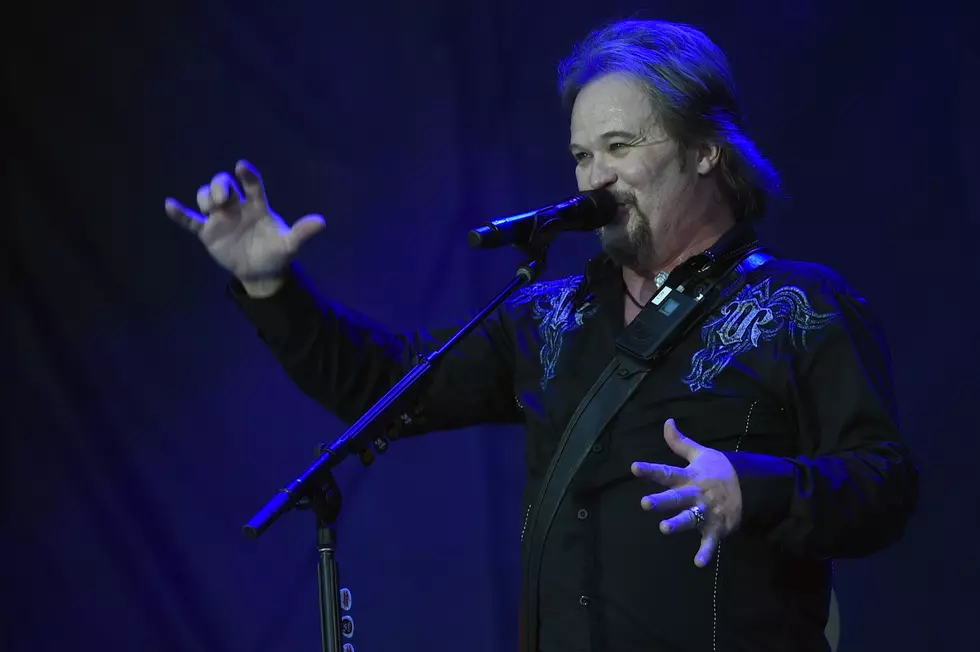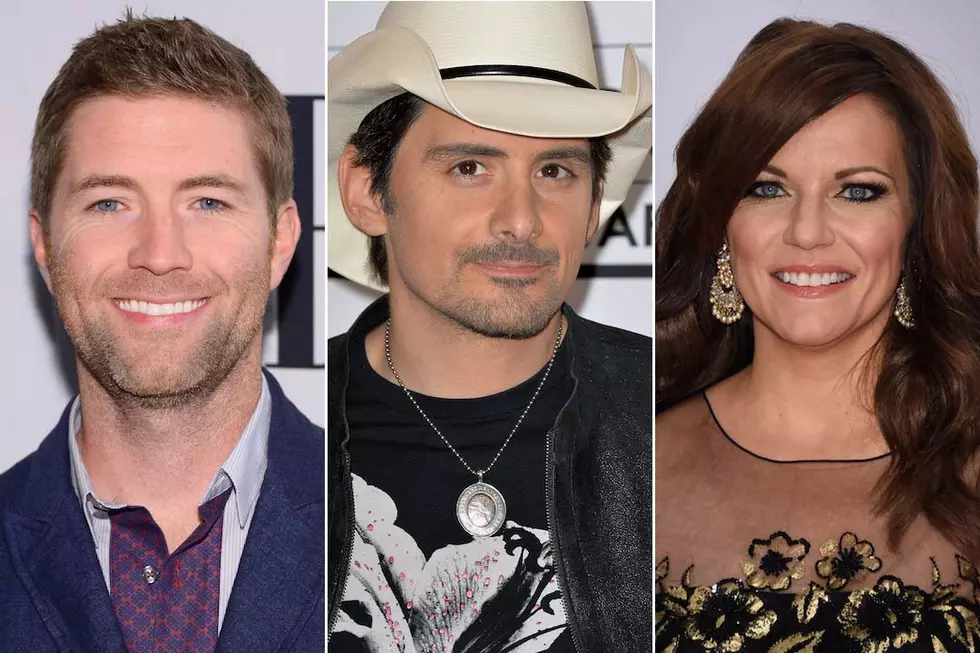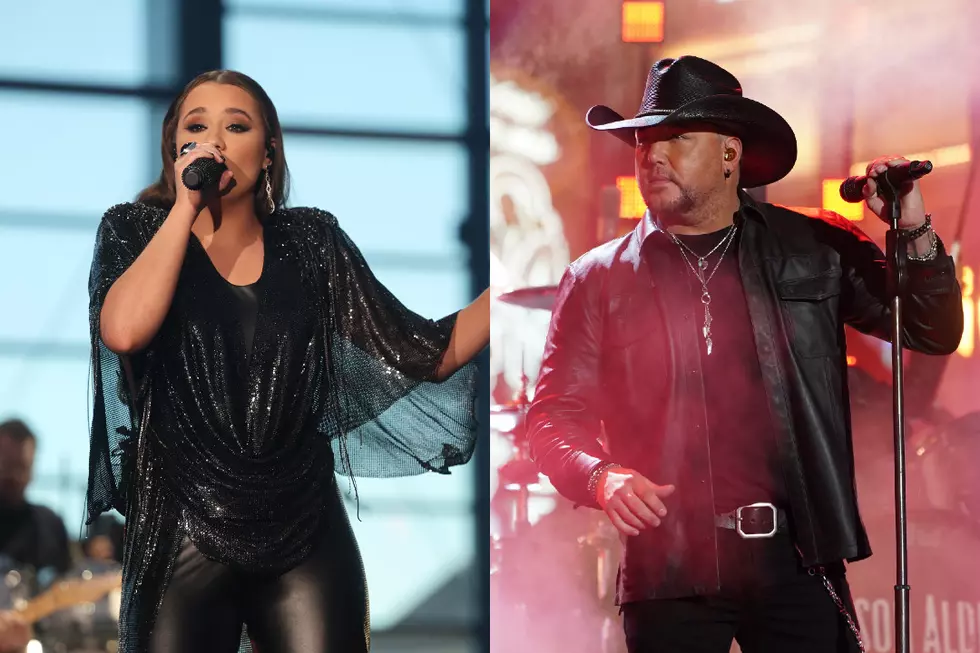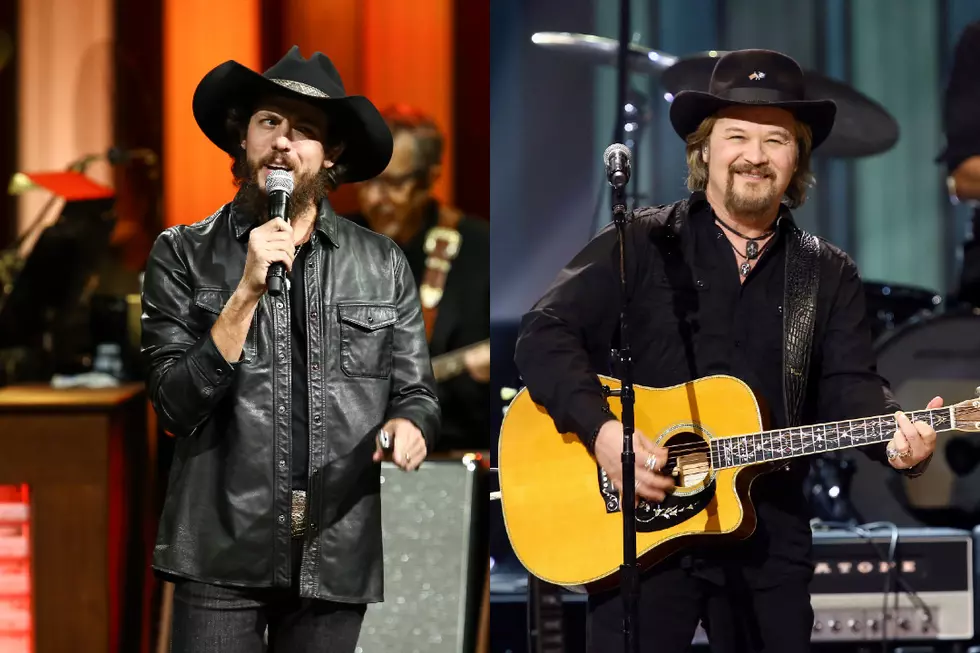
Travis Tritt Interview: Country Veteran Talks New Album, ‘The Calm After …’
Travis Tritt has had a long, hard road to his new album. He released his last project, 'The Storm,' in 2007 via Category 5, a start-up independent label that came to Nashville with the intention of challenging the major label paradigm.
Instead, the label folded within a year, and Tritt has spent much of the subsequent time in litigation to regain control of the album, which went largely unheard by the public. After a lengthy court battle, he has re-mastered the tapes from 'The Storm' and added two new songs. He released the resulting package under the title 'The Calm After . . .' on July 9 via his self-owned Post Oak Recordings.
Tritt released the album's first single, 'Sometimes Love Just Ain't Enough,' on Father's Day after recording the Patty Smyth / Don Henley duet with his 15-year-old daughter, Tyler Reese.
The Boot caught up with Tritt recently to talk about his new album, his time away from recording, how the business has changed and more in this exclusive interview.
This new album is an update of the last album that you had out, is that correct?
That's correct. We released an album called 'The Storm' in 2007, which was an album that I co-produced with Randy Jackson [from 'American Idol']. And it was on an independent label that, just about the time that we got ready to do the marketing push for the release of the record, the president of that label ran into some legal difficulties. Some financial improprieties were involved, and ultimately ended up leading to the demise of the record label.
So the album never really got a chance to see the light of day, even though we sold about 180,000 copies of it. But we never really had a marketing plan behind it, never really got a chance to put it into play.
We went to court to obtain those masters so we could fulfill a dream that I'd had for a long time, which is to start my own independent label. So it took several years in the court system to finally come to an agreement on that litigation. We finally got the masters back last year, and we went back in and totally re-mastered everything, and then added two new tracks that were never released, and titled it -- appropriately, since the last one was called 'The Storm,' we titled this one 'The Calm After . . .'
Did that guy end up going to prison? I know there were allegations of him embezzling from a string of nursing homes he was involved in.
Yeah, he ended up going to jail. He was accused of several crimes, but they actually ended up convicting him on several counts of mail fraud, and he ended up doing some time in prison for that.
That must have put you in a strange spot financially, with the money from that album not coming in, and you also having to put substantial money out to litigate.
Absolutely. It was definitely a difficult time, because right around that same time, of course when we had the beginning of the recession that took place at the end of 2008, starting in 2009 it was just -- hardly anybody in the first half of 2009 in the entertainment industry was working, because a lot of casinos and a lot of venues that artists play in simply were not getting any business. Everybody just basically sat at home and sat on their wallets for the first part of 2009, and it was definitely a very trying time.
Everybody's got bills to pay. As anyone who works any kind of job knows, if you stop having income, that doesn't mean that the mortgage stops, or the water bill, or the power bill or whatever. If you don't have employment, it's a little bit tight.
You mentioned wanting to have your own label. Now you actually do. That enables you to keep a lot more of what you earn.
It does. And we've always been pretty smart on the road as far as our touring money is concerned. There's no other entities involved, other than promoters that we work with. From the standpoint of doing records, what a lot of people don't realize is that when you're recording for a major label, as the artist you make very little of the overall amount that album sells for.
If a CD sells for -- back when we first got started they were usually selling for anything from $13.99 to $16.99 in stores, and out of that, you're lucky if you could get a dollar and a half or two dollars out of every CD sold, and the majority of that goes back into your reserve account at the label that's used to pay for other expenses. The rest of it goes back to the record label. They're kind of like a bank. They put that money out up front, but they're not doing it for free. I think if a lot of people knew what the totals were, they'd be shocked.
The thing about having your own record label is that obviously you are much more in control of how the money is spent. And I'm finding that I can do things a whole lot cheaper than the record labels and have the same quality, if not better. But for just a fraction of the cost. Because record labels are kinda like the government, you know? The government spends tens of thousands of dollars for a toilet seat that you could buy at WalMart for $19.99.
The major labels are the same way. They'll spend $200,000 to record an album that I can record for $30,000 or $40,000. Those are the reasons we're seeing so many of the major labels get into such trouble over the last few years.
Does the prevalence of social media help you more, or hurt you more in terms of having your own label? Because it can allow you to direct market, but it also allows people to steal from you more easily.
You're always gonna have that. The problem of piracy has been a problem for record labels since I've been in the business. It was a problem long before, and it's going to continue to be a problem as social media continues to thrive and increase in popularity. But it's a trade-off from the perspective of, I think you no longer have to pander to a lot of the people you had to pander to before -- commercial radio, the record labels themselves, etc. And a lot of the distributors, to get your music out there to the people where it needs to go.
I would hate to be a new artist today getting started, because it is so much more difficult. You have to be very successful very quickly nowadays. My first single came out in 1989, which was 'Country Club.' If I'm not mistaken, I think that single took almost 30 weeks to reach the No. 9 position on Billboard. And now, if you're not wherever you're gonna be in 12-15 weeks, its over. You're done.
The trade-off is having the freedom to do the kind of music you want to do, when you want to do it. If you're an established artist who has a fan base, it's extremely liberating. Having that level of freedom, combined with the level of profit, I think is an acceptable trade-off for the opportunity it creates for people to come in and pirate your stuff.
It sounds like you're in a better position than you would be with a major label, in many ways.
I've got to tell you, I'm more energized -- I've never lost the love for performing, for going out on stage and making music for fans. I've never lost the love for creating new music, for writing, producing, being in the studio. But I'm more energized by having this opportunity now than I can remember being at any point in my career. It's so exciting to have this opportunity at this point in time. I turned 50 years old this year -- that's what my mother tells me, I think I'm gonna have to check my birth certificate. [Laughs]
I don't feel 50. I feel like I'm still in my twenties, because I still get just as excited about doing the music as I ever have been. I love it. I love every part of it, as far as the creating part. It's the business side that has been somewhat tough to deal with in the past, and has probably been one of the biggest reasons why, at several points in my career, I've just kinda stepped away from it for a while. Because you get into a situation where you're constantly fighting with people at a radio station, or people at a record label to try to get your music where you think it should be. It becomes very exhausting, very frustrating, knowing full well that if you could just get the music out directly to the public -- you know what your fan base is and what they like.
And not having to play by anyone's rules other than my own is extremely exciting, and it makes me more enthusiastic about doing the music now than I probably have ever been in my entire career.
More From TheBoot


![Country Artists Who Have Performed During the Super Bowl [PICTURES]](http://townsquare.media/site/623/files/2017/01/travis-tritt-tanya-tucker-clint-black-the-judds-super-bowl.jpg?w=980&q=75)

![Bryce Leatherwood Performs Two Country Hits During ‘The Voice’ Live Finale [Watch]](http://townsquare.media/site/204/files/2022/12/attachment-bryce-leatherwood-the-voice-finale.jpg?w=980&q=75)




